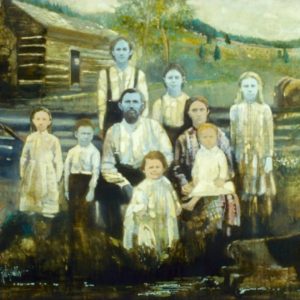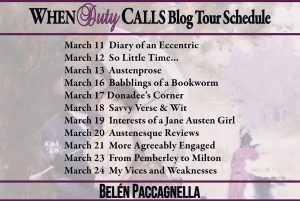Hello readers. Today we have a delightful look at Victoria Kincaid’s latest Pride & Prejudice variation novel, Rebellion at Longbourn.
First, I want to share with you a little bit about the book before we get to Kincaid’s excerpt and the giveaway. Please give her and everyone at Longbourn a warm welcome.
Synopsis:
Elizabeth Bennet’s father died two years ago, and her odious cousin Mr. Collins has taken possession of the Longbourn estate. Although Collins and his wife Charlotte have allowed the Bennet sisters and their mother to continue living at Longbourn, the situation is difficult. Viewing Elizabeth and her sisters as little more than unpaid servants, Collins also mistreats the tenants, spends the estate’s money with abandon, and rejects any suggestions about improving or modernizing Longbourn.
After one particularly egregious incident, Elizabeth decides she must organize a covert resistance among her sisters and the tenants, secretly using more modern agricultural methods to help the estate thrive. Her scheme is just getting underway when Mr. Darcy appears in Meryton. Upon returning from a long international voyage, Darcy is forced to admit he cannot forget his love for Elizabeth. When he learns of the Bennet family’s plight, he hurries to Hertfordshire, hoping he can provide assistance.
Sinking into poverty, Elizabeth is further out of Darcy’s reach than ever; still, he cannot help falling even more deeply in love. But what will he do when he discovers her covert rebellion against Longbourn’s rightful owner? Falling in love with Mr. Darcy was not part of Elizabeth’s plan, but it cannot be denied. Darcy struggles to separate his love for her from his abhorrence for deception. Will their feelings for each other help or hinder the Rebellion at Longbourn?
Isn’t this always how we want to see Darcy? A dashing hero to the rescue.
Hello Serena and thank you for welcoming me back to your blog! Rebellion at Longbourn takes place two years after the events in Pride and Prejudice. Darcy never had a chance to propose at Hunsford. Instead he has been on an extended tour of Canada with Bingley and Georgiana; they have heard nothing of the Bennet family during this time. In this scene they have just returned to London and are awaiting a visit from Bingley’s sisters. Enjoy!
“No doubt your sisters will arrive any minute. I could not allow you to loll about in bed one more minute.” A messenger had been sent to the Hursts’ townhouse very early, and Darcy knew Miss Bingley and Mrs. Hurst would be eager to share the latest on dits. He experienced a pang of regret; Bingley would be leaving them to stay with his sisters. Darcy and Georgiana had relished his company on their travels.
Bingley sighed and pushed around the eggs on his plate. “I expect I shall receive another lecture about how irresponsible it was for me to gallivant off to North America.”
Darcy grimaced. “At least you have had more practice in saying no to them.” They had criticized Bingley’s decision in every letter. No doubt Bingley would have collapsed into scribbling abject apologies if Darcy had not stiffened his spine. But being on his own had been good for his friend. Bingley had grown far more decided and sure of his tastes when he was away from his sisters’ influence.
“It shall be quite trying when I relocate to Grosvenor Square,” Bingley mused.
“You are welcome to remain at Darcy House for as long as you like,” Darcy remarked.
“It is no imposition.”
Bingley straightened up in his chair. “I may accept that offer.” Darcy knew his sisters would not like it, but obviously Bingley was willing to risk their wrath.
Briggs, the butler, entered the room and announced, “Miss Bingley, sir. And Mr. and Mrs. Hurst.”
Bingley sighed deeply, not like a man pleased to be reunited with his family after a year and a half. Both men stood as the three visitors entered.
The two women gave their brother perfunctory kisses on the cheek, and the men exchanged handshakes. The newcomers helped themselves to breakfast from the sideboard and settled into chairs around the table. Darcy and Bingley talked a little about the details of their trip, but the sour expression on Miss Bingley’s face and the disapproving purse of Mrs. Hurst’s lips suggested they were not particularly interested in that subject. Mr. Hurst was primarily interested in the kippers.
When the weight of disapproval had caused the conversation to wane, Bingley gamely asked, “So, what is the news, eh?”
“You would know if you had ever bothered to write,” Miss Bingley answered tartly.
“I did write.”
His sister rolled her eyes. “I declare it was not above four times! I am overwhelmed by your fraternal devotion. And, of course, the letters were short, dashed-off affairs.”
Bingley rubbed his forehead. “I am a poor correspondent. I acknowledge it, but I am here now. What have I missed?”
This was all the encouragement his sisters needed to launch into twenty minutes of gossip, primarily about people Darcy did not know or could not care about. Eighteen months of freedom from the obligations of the ton had not endeared him to the social whirl, although he supposed he should pay more attention now that Georgiana would be launched in society. Still, he found himself thinking longingly of Pemberley.
His absence had apparently not dimmed Miss Bingley’s hopes of Darcy, for she still addressed the better part of her remarks directly to him, although he had not asked her any questions.
There was only one person he would consider inquiring about, and he did not dare.
Fortunately, Bingley unwittingly assisted him in this endeavor. “What is the news from the Bennet family? You did not mention them in any of your letters.” He leaned forward in his seat.
Miss Bingley blinked. “Why should I?”
“You are Jane Bennet’s friend.”
His sister fluttered her hands. “Friends, Charles? Certainly we were acquainted, but friends…” She gave Mrs. Hurst a sidelong look.
Mrs. Hurst actually giggled. “It is for the best if we do not acknowledge the connection. Thank goodness you gave up the lease on Netherfield!”
Bingley exchanged a glance with Darcy but did not correct his sister’s mistake. Darcy restrained the urge to fidget in his chair as he imagined everything that could have befallen the Bennets.
“Surely you have heard some news from Longbourn,” Bingley said.
“Indeed…” Miss Bingley drew the word out. She was taking pleasure in the suspense.
Darcy’s heart beat faster, knowing that whatever she said would be bad. She would not derive such pleasure from relating news of the family’s extreme felicity. “Shortly after you departed, the father died.”
Darcy could not prevent a gasp. If he had known, he never would have left. If he had known, he would have returned. He was angry with himself for not discovering the news and with Bingley’s sisters for not relaying it. During the early part of the voyage, he had been so intent on endeavoring to forget Elizabeth that he had not sought to know about her family, and this was the result.
“Did Mr. Collins take possession of Longbourn?” Darcy attempted to keep his tone neutral and disinterested.
“Mr. Collins?” Miss Bingley asked. “Oh yes, the clergyman. I suppose so.”
Bingley’s pale face mirrored Darcy’s own distress. “How terrible for Ja—all the Bennets!” Bingley exclaimed. “Where do the sisters reside now?”
A fist clenched around Darcy’s heart. Although he knew change was inevitable, some part of him had secretly expected to find Elizabeth dwelling with her parents at Longbourn just as she had when he departed.
Mrs. Hurst rolled her eyes. “They are hardly the sort of family we would maintain a connection with. How should we know?”
Bingley frowned. “I thought at least you would condole with them, write them a note expressing your sympathy, invite them for tea when they visited town.”
“I am not aware that anyone from the family has been to town,” Mrs. Hurst replied. Strange. Darcy remembered clearly that the Bennets had relatives in Cheapside.
Although Elizabeth might have guessed at Bingley’s sisters’ insincerity, Miss Bennet seemed to believe them true friends. Surely she would have written to them if she visited town—at the very least to maintain a connection with Bingley. Was it possible she had remained sequestered in Hertfordshire all these months? It was scarcely thirty miles’ distance!
The sisters were sharing a conspiratorial smile that triggered Darcy’s suspicions. Surely anything that made these two so very gleeful could not be good for the Bennets.
He crumpled his napkin in frustration. I cannot ask them. I cannot betray too much interest. Patience, he counseled himself. I will learn everything soon.
Aren’t you eager to find out what happens? I know I am.
GIVEAWAY:
One Lucky Reader can receive an e-book of Rebellion at Longbourn. Please leave a comment with email so I can contact you. Deadline to enter is June 24 by 11:59 p.m.
Good Luck, everyone.













 The real-life account begins with Martin Fugate, a French orphan who immigrated to the United States and settled in Kentucky in 1820. He married and started a family, and soon starting having children who were born blue. Large families were typical in those days, and the Fugates, along with three or four other families, clustered in isolation from the rest of the world until those who were blue were not too uncommon.
The real-life account begins with Martin Fugate, a French orphan who immigrated to the United States and settled in Kentucky in 1820. He married and started a family, and soon starting having children who were born blue. Large families were typical in those days, and the Fugates, along with three or four other families, clustered in isolation from the rest of the world until those who were blue were not too uncommon. What especially caught my attention was a brief description near the end of the article about a man purportedly married to “the bluest woman who ever lived.” Though she had died many years prior, he refused to live anywhere but the log cabin he had built for her with his own hands, a stone’s throw from her grave. When asked about his wife’s peculiar coloring, he refused to acknowledge she’d been blue. If love is colorblind, surely this was a fine example. Instantly, I knew I would write a love story that explored the meaning of identity, belonging and what it is to be truly one of a kind, an undertaking that took me five years.
What especially caught my attention was a brief description near the end of the article about a man purportedly married to “the bluest woman who ever lived.” Though she had died many years prior, he refused to live anywhere but the log cabin he had built for her with his own hands, a stone’s throw from her grave. When asked about his wife’s peculiar coloring, he refused to acknowledge she’d been blue. If love is colorblind, surely this was a fine example. Instantly, I knew I would write a love story that explored the meaning of identity, belonging and what it is to be truly one of a kind, an undertaking that took me five years. About the Author:
About the Author:



 Mine? Well, it’s lovely. A room of my very own, as ordered by Virginia. It was about 25 years ago when my wife Gloria and I moved into the house in San Francisco that we rent from her Aunt Rose, our Godmother. Because we needed space for guests and she didn’t mind, Gloria’s room-of-her-own occasionally doubles as the guest room. And because I am a restless writer—much given to getting up and walking around, making tea, etc.—I preferred the first-floor room in the front.
Mine? Well, it’s lovely. A room of my very own, as ordered by Virginia. It was about 25 years ago when my wife Gloria and I moved into the house in San Francisco that we rent from her Aunt Rose, our Godmother. Because we needed space for guests and she didn’t mind, Gloria’s room-of-her-own occasionally doubles as the guest room. And because I am a restless writer—much given to getting up and walking around, making tea, etc.—I preferred the first-floor room in the front. heard of, and she invited us to her house, which is filled with her own beautiful artwork. What a thrill to see that! And then she allowed us each to choose a drawing. Right below Florence’s piece are a photo of a dear departed friend and a framed Christmas card of Central Park West in snow, shot by my old friend Chuck. Next to that, and placed so I look at it all the time is a gorgeous watercolor by another friend, the artist John Zurier, whose career is flourishing. It was painted in Iceland on one of his first trips there. If you don’t know John’s work, do look him up!
heard of, and she invited us to her house, which is filled with her own beautiful artwork. What a thrill to see that! And then she allowed us each to choose a drawing. Right below Florence’s piece are a photo of a dear departed friend and a framed Christmas card of Central Park West in snow, shot by my old friend Chuck. Next to that, and placed so I look at it all the time is a gorgeous watercolor by another friend, the artist John Zurier, whose career is flourishing. It was painted in Iceland on one of his first trips there. If you don’t know John’s work, do look him up! On the opposite wall is one of my proudest possessions, the walking stick given to all graduates of the Warren Wilson College MFA Program for Writers. It’s handmade in Asheville, NC from native rhododendron to always keep us connected to the mountains. Warren Wilson is the reason I have a novel to share with the world, and the community of writers it has created keeps me going year after year.
On the opposite wall is one of my proudest possessions, the walking stick given to all graduates of the Warren Wilson College MFA Program for Writers. It’s handmade in Asheville, NC from native rhododendron to always keep us connected to the mountains. Warren Wilson is the reason I have a novel to share with the world, and the community of writers it has created keeps me going year after year.
 About the Author:
About the Author:

 About the Author:
About the Author:



 About the Author:
About the Author:

 About the Author:
About the Author:



